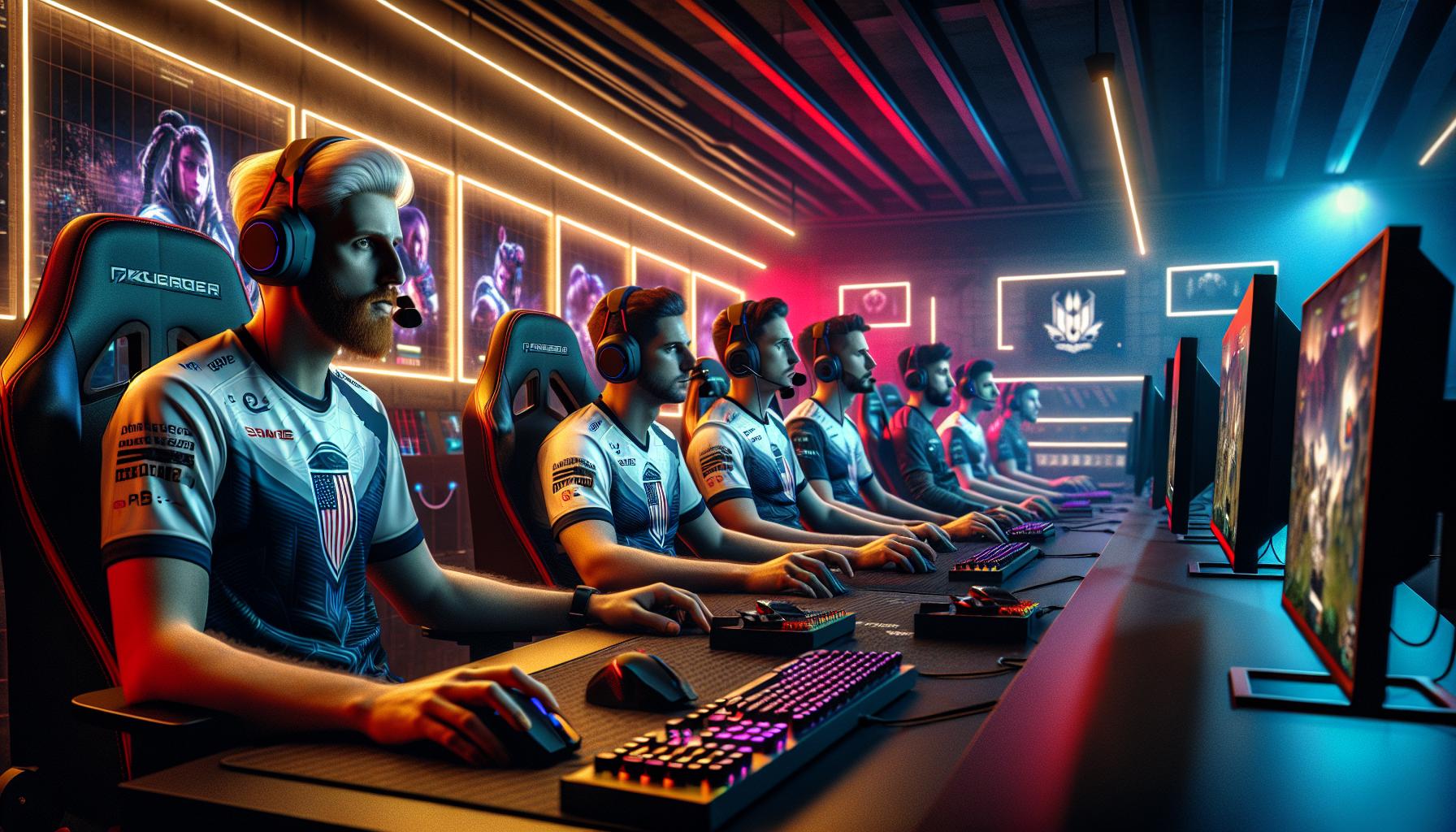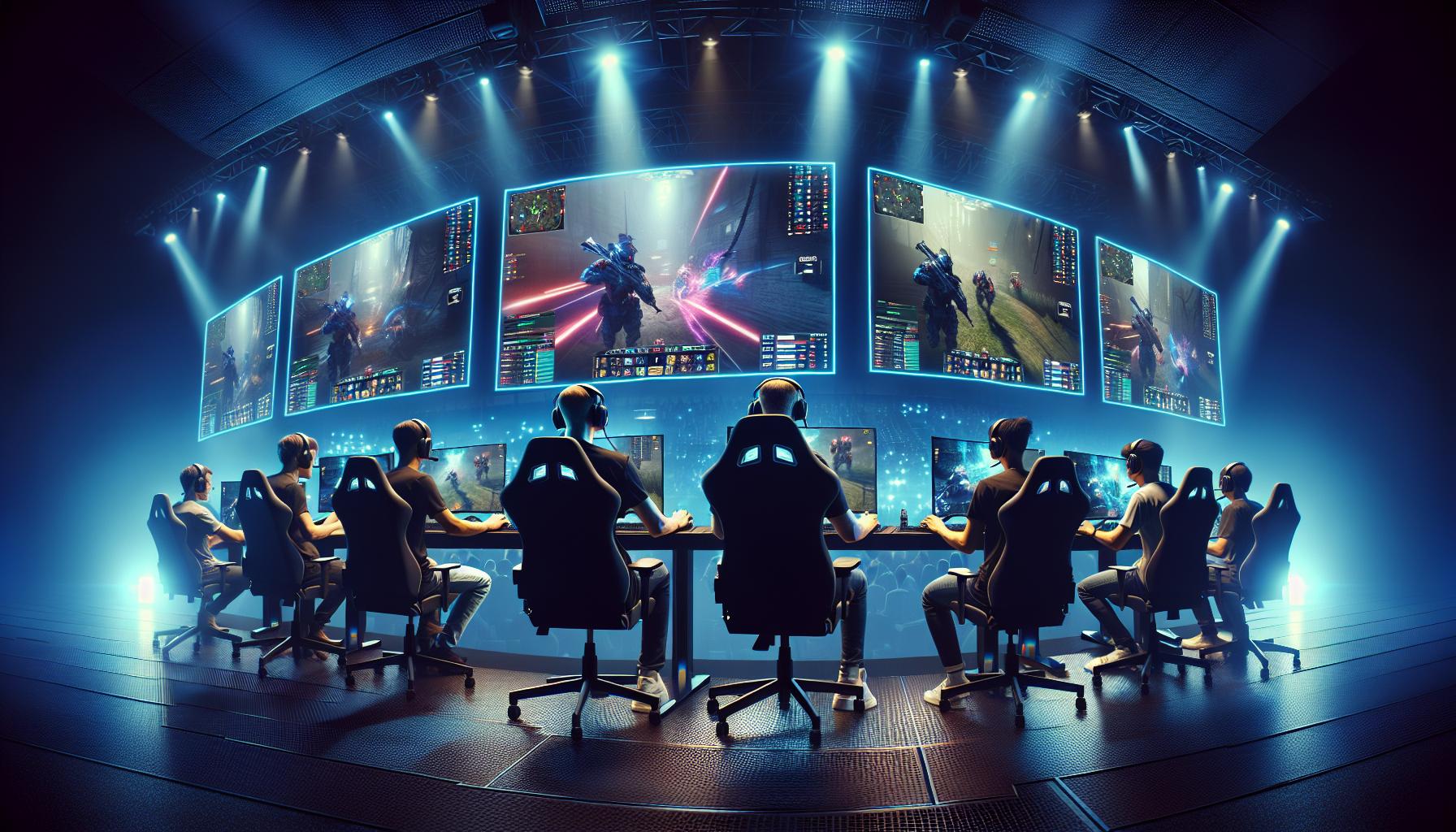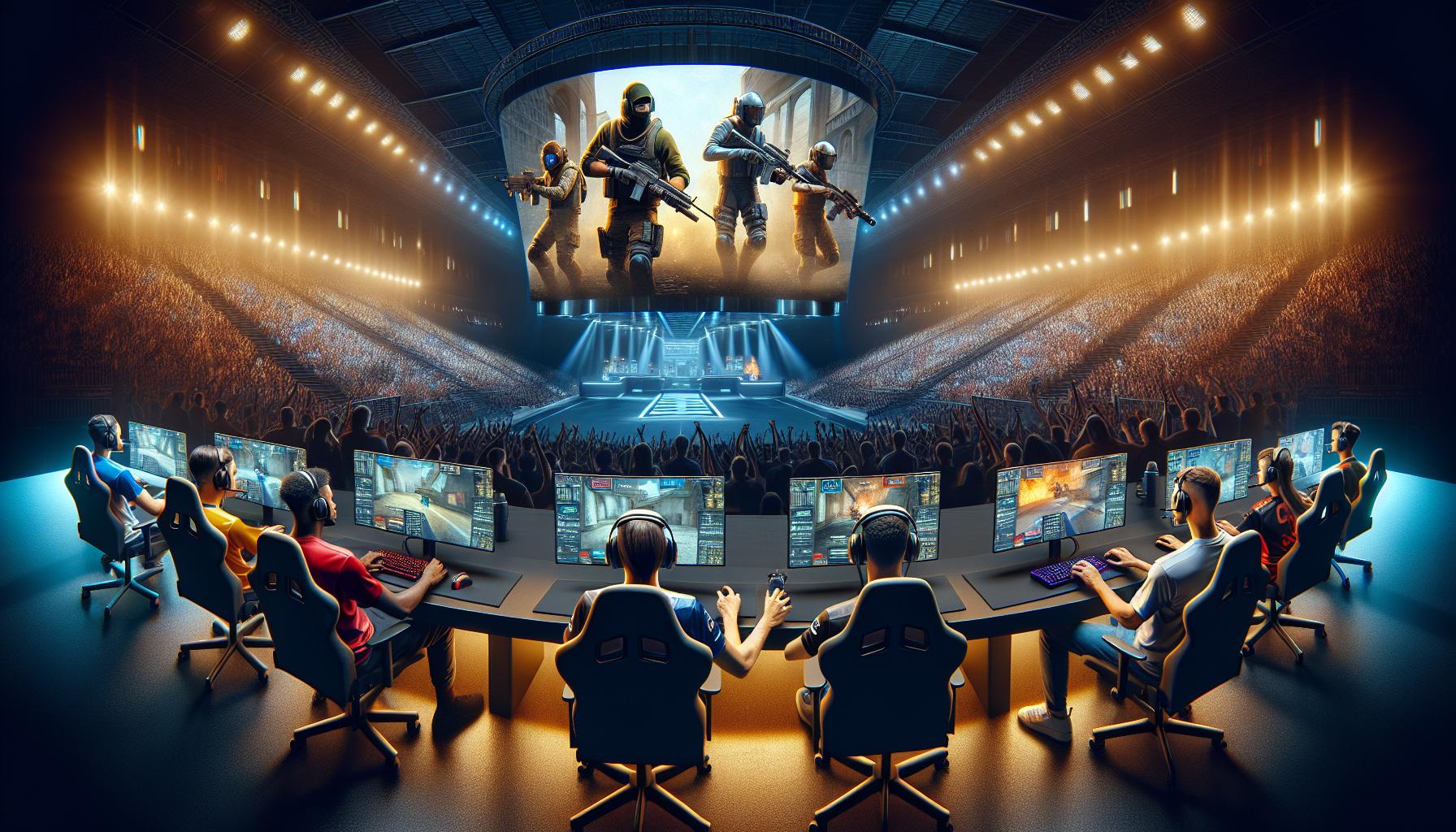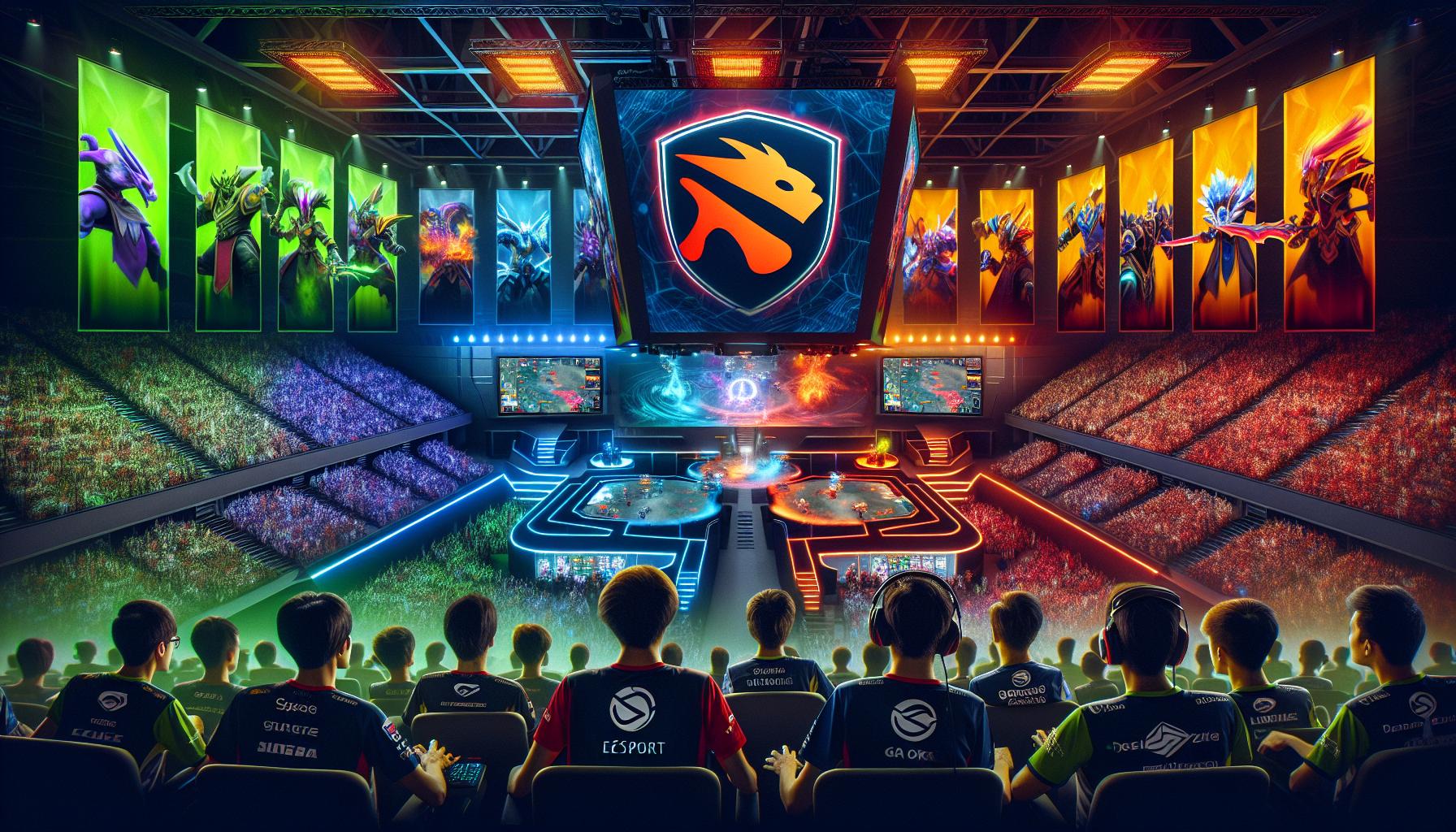Top 15 Most Successful Esports Teams in 2024: Rankings, Stats & Prize Earnings

As a long-time esports enthusiast and industry analyst, I’ve witnessed the incredible evolution of competitive gaming over the past decade. The world’s top esports teams have transformed from small groups of passionate gamers into professional organizations worth hundreds of millions of dollars.
From League of Legends powerhouses like T1 and G2 Esports to CS:GO legends like Team Liquid and Natus Vincere, these elite teams have redefined what it means to compete at the highest level. I’ll take you through my carefully researched rankings of the most successful esports teams based on tournament winnings, championship titles and overall market value. Whether you’re a die-hard fan or just getting into competitive gaming, you’ll discover why these organizations have earned their spots at the top of the esports world.
Key Takeaways
- Top esports teams have evolved from casual gaming groups into professional organizations worth hundreds of millions, with average team valuations reaching $240M in 2023
- Elite teams like T1, G2 Esports, and Team Liquid maintain sophisticated training facilities and employ specialized staff including analysts, mental health professionals, and nutritionists
- Successful organizations generate revenue through multiple channels: tournament winnings, merchandise sales, content creation, and strategic partnerships with gaming brands
- Modern esports teams implement structured training programs with 8-10 hour daily practice schedules, regular VOD reviews, and data-driven performance analysis
- The most successful teams invest heavily in player development through academy programs, position-specific coaching, and international bootcamps to maintain competitive excellence
The Evolution of Professional Esports Teams
Professional esports teams evolved from casual gaming groups into multi-million dollar organizations. Early esports teams in the 1990s operated from basements with minimal infrastructure. Today’s teams function from state-of-the-art training facilities equipped with advanced gaming setups, analytics tools & sports science equipment.
Organizational Structure Changes
Modern esports organizations incorporate specialized roles:
- Performance analysts who track player statistics & gameplay metrics
- Mental health professionals supporting player well-being
- Nutritionists developing athlete-specific meal plans
- Social media managers building brand presence
- Business development executives securing sponsorships
Financial Growth Metrics
The financial evolution of esports teams shows significant growth:
| Year | Average Team Valuation | Top Prize Pools | Major Sponsors |
|---|---|---|---|
| 2012 | $5M | $1M | 10 |
| 2016 | $50M | $20M | 45 |
| 2023 | $240M | $40M | 150 |
Professional Training Systems
Elite teams implement structured training programs:
- 8-hour daily practice schedules
- VOD review sessions analyzing past performances
- Scrimmage matches against international competitors
- Physical fitness routines enhancing gaming endurance
- Team-building activities improving communication
Revenue Diversification
Modern esports teams generate income through multiple channels:
- Tournament prize money from competitive events
- Merchandise sales including jerseys & gaming gear
- Content creation on platforms like YouTube & Twitch
- Partnership deals with gaming hardware manufacturers
- Revenue sharing from game publishers
Professional esports teams now operate in dedicated leagues with franchised spots, creating stable ecosystems for sustained growth. These organizations attract investment from traditional sports figures, venture capital firms & entertainment companies, establishing esports as a legitimate professional industry.
Top League of Legends Teams

League of Legends competitive teams represent the pinnacle of professional gaming excellence, with established organizations dominating the international scene through strategic gameplay and consistent performance across multiple seasons.
T1: The Korean Dynasty
T1 stands as League of Legends’ most decorated organization with 3 World Championships (2013, 2015, 2016). Led by legendary mid-laner Lee “Faker” Sang-hyeok, T1 has accumulated 10 LCK titles and maintains a 70% win rate in international tournaments. Their systematic approach to player development includes:
- Operating a 10-person roster with intensive internal scrims
- Maintaining dedicated position coaches for each role
- Implementing data-driven performance analysis
- Running a successful academy program producing talents like Gumayusi Zeus
| Achievement | Count | Years |
|---|---|---|
| World Championships | 3 | 2013, 2015, 2016 |
| LCK Titles | 10 | 2013-2023 |
| MSI Victories | 2 | 2016, 2017 |
- Securing the MSI championship in 2019
- Maintaining consistent top 4 finishes at international events
- Developing regional talents into international stars
- Creating revolutionary meta strategies recognized globally
| Achievement | Count | Years |
|---|---|---|
| LEC Titles | 8 | 2016-2023 |
| MSI Victory | 1 | 2019 |
| Worlds Finals | 1 | 2019 |
Counter-Strike Elite Organizations

Counter-Strike’s competitive landscape features organizations that have established unprecedented legacies through tournament victories, player development, and strategic innovation.
FaZe Clan: International Powerhouse
FaZe Clan stands out in Counter-Strike with its multinational roster strategy, consistently ranking in the top 5 globally since 2017. The organization’s CS:GO division has accumulated $4.2 million in prize money through 15 major tournament victories, including the PGL Major Antwerp 2022. Their roster features players from 5 different countries, including karrigan (Denmark), rain (Norway), and ropz (Estonia), creating a dynamic mix of European talent.
NAVI: CIS Dominance
Natus Vincere (NAVI) has established itself as the premier CIS region Counter-Strike organization with $8.3 million in tournament earnings. The team’s core, built around s1mple – widely regarded as Counter-Strike’s most skilled player – has secured 18 premier tournament victories including the PGL Major Stockholm 2021. NAVI’s academy program has produced 8 professional players, demonstrating their commitment to talent development in the CIS region.
| Team | Major Titles | Prize Money | Premier Tournaments Won |
|---|---|---|---|
| FaZe Clan | 1 | $4.2M | 15 |
| NAVI | 1 | $8.3M | 18 |
Dota 2’s Greatest Teams

Dota 2’s competitive landscape features teams that have achieved remarkable success through strategic innovation and consistent performance. These organizations have redefined professional Dota 2 through their achievements and approaches to the game.
Team Spirit: The New Champions
Team Spirit emerged as a dominant force in Dota 2 by winning The International 10 (TI10) in 2021 with $18.2 million in prize money. The CIS-based organization followed this achievement with a win at The International 11, earning an additional $8.5 million and becoming the second team to secure multiple TI victories. Their roster stability and innovative drafting strategies, particularly with heroes like Collapse’s Magnus, established new meta trends in professional Dota 2.
OG: Two-Time TI Winners
OG created history by becoming the first team to win back-to-back TI championships in 2018 and 2019, accumulating $26.8 million in prize money. The team pioneered several meta-defining strategies:
- Implemented the IO carry strategy at TI9
- Introduced position-fluid lineups with flexible hero roles
- Developed the four-protect-one strategy around Spectre
- Mastered psychological warfare through creative chat wheel usage
| Achievement | Details |
|---|---|
| Prize Money | $33.5 million total |
| Major Wins | 4 Valve Majors |
| Win Rate | 71% in TI matches |
| Consecutive TIs | 2 (TI8, TI9) |
Rising Stars in Valorant
Valorant’s competitive scene has produced exceptional teams that dominate regional tournaments with innovative strategies and remarkable mechanical skills.
Sentinels: North American Excellence
Sentinels established their dominance in Valorant’s early competitive scene by winning the VCT 2021 Masters Reykjavík with a perfect 12-0 map record. The team’s roster, anchored by Tyson “TenZ” Ngo, revolutionized the meta through aggressive playstyles paired with precise utility usage. Their achievements include:
- Secured 1st place at VCT 2021 Stage 2 Masters with $200,000 in prize money
- Dominated the North American circuit with 5 consecutive regional tournament victories
- Pioneered the double duelist composition on multiple maps
- Generated $1.2 million in tournament earnings across 2021-2023
- Captured the VCT Champions 2022 trophy with $300,000 in prize earnings
- Maintained a 75% win rate in international competitions
- Developed 3 MVP-caliber players through their academy system
- Accumulated $850,000 in tournament winnings since formation
- Set viewership records with 1.4 million peak concurrent viewers during the Champions 2022 final
| Team | Major Titles | Prize Money | Win Rate (2022-23) |
|---|---|---|---|
| Sentinels | 6 | $1.2M | 68% |
| LOUD | 4 | $850K | 75% |
What Makes Top Esports Teams Successful
Elite Training Infrastructure
Top esports organizations operate state-of-the-art training facilities equipped with high-performance gaming setups, analytics labs, and recovery rooms. Teams like T1 maintain dedicated practice spaces with 240Hz monitors, ergonomic chairs, and temperature-controlled environments. The training schedule includes 8-hour practice blocks, VOD review sessions, and team strategy meetings.
Professional Support Staff
Modern esports teams employ specialized staff:
- Performance analysts who track player statistics and identify improvement areas
- Mental health coaches who manage competitive stress
- Nutritionists who design meal plans for optimal gaming performance
- Physical trainers who prevent gaming-related injuries
- Strategic coaches who develop game plans and counter-strategies
Data-Driven Decision Making
Leading teams utilize advanced analytics platforms to:
- Track player performance metrics
- Analyze opponent patterns
- Measure team synergy indicators
- Evaluate practice efficiency
- Monitor player health statistics
| Performance Metric | Industry Standard | Top Teams Average |
|---|---|---|
| Practice Hours/Day | 6 hours | 8-10 hours |
| Support Staff | 3-5 people | 10-15 people |
| Analysis Tools | 2-3 | 5-7 |
| Scrims per Week | 25 | 35-40 |
Player Development Systems
Elite organizations implement structured development programs:
- Academy teams for talent cultivation
- Position-specific coaching
- Regular skill assessments
- International bootcamps
- Mentorship from veteran players
Business Operations Excellence
Successful teams maintain robust business structures:
- Multiple revenue streams from merchandise to content creation
- Strategic partnerships with global brands
- Fan engagement initiatives
- Media rights negotiations
- Tournament participation strategy
- Clear communication protocols during matches
- Defined shot-calling hierarchies
- Regular team-building activities
- Conflict resolution procedures
- Performance feedback systems
Conclusion
The world of professional esports has evolved into a sophisticated industry where elite teams combine cutting-edge technology professional management and strategic innovation. From T1’s dominance in League of Legends to Team Spirit’s remarkable achievements in Dota 2 these organizations have redefined competitive gaming.
I’ve seen firsthand how the best esports teams have transformed from casual gaming groups into multimillion-dollar enterprises. Their success stems from a perfect blend of raw talent structured training and robust organizational support.
Whether you’re a dedicated fan or just getting into esports it’s clear that these powerhouse teams will continue shaping the future of competitive gaming. The rapid growth and evolution of professional esports teams prove that this industry is here to stay and will only get bigger.



